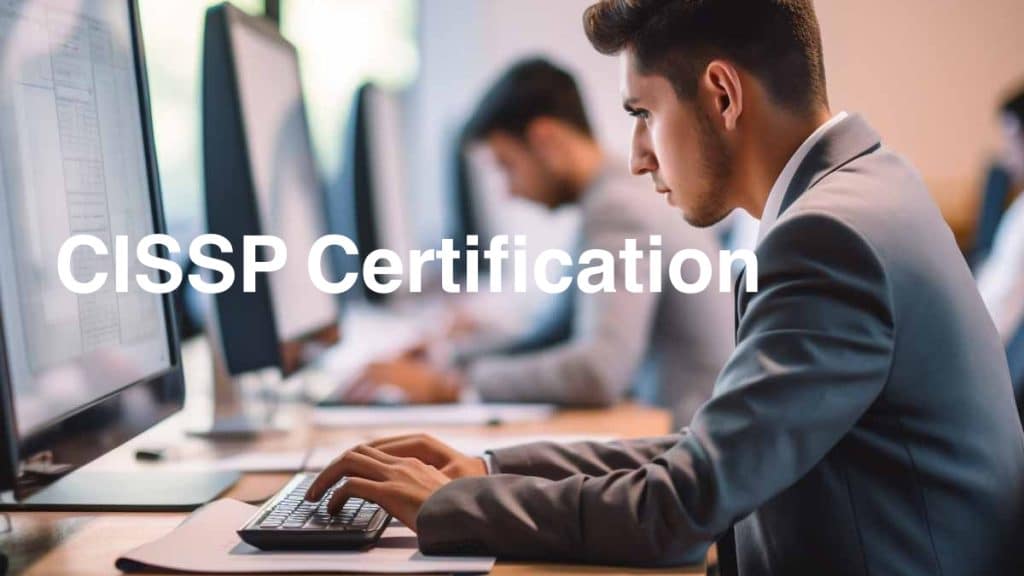The Certified Information Systems Security Professional (CISSP) certification is a highly regarded credential in the field of cybersecurity. This article aims to provide valuable insights and strategies for individuals seeking to pass the CISSP certification exam. By understanding the importance of the CISSP training certification, preparing effectively, mastering test-taking strategies, practicing diligently, staying motivated and focused, and reflecting on the exam experience, aspiring cissp professionals can increase their chances of success.
Understanding the CISSP Certification
The CISSP certification is a globally recognized standard for information security proficiency. It validates an individual’s knowledge and expertise in various domains of cybersecurity. With the ever-increasing threats to digital systems and data, the CISSP Training certification has become a crucial qualification for professionals in the field. The certification demonstrates one’s commitment to upholding the highest standards of security management and serves as a benchmark for employers when evaluating candidates for cybersecurity roles.
1. Preparing for the Exam
To effectively prepare for the CISSP exam, it is essential to create a study plan and schedule. This plan should include dedicated time for studying each of the eight cissp domains. Utilizing official ISC2 materials and practice tests is highly recommended to gain a comprehensive understanding of the exam content. Balancing work, study, and personal life is crucial during exam preparation, and strategies such as time management and prioritization can help achieve this balance.
2. Familiarizing Yourself with CISSP Domains
The CISSP exam covers eight domains, including security and risk management, asset security, and cryptography. Understanding the weightage of each domain in the exam is crucial for effective preparation. By identifying areas of strength and weakness in each domain, candidates can prioritize their study efforts accordingly. This approach ensures a well-rounded understanding of the entire cissp body of knowledge.
3. Mastering Test-Taking Strategies
Managing time effectively during the exam is crucial to ensure all questions are answered. Techniques such as skipping difficult questions and returning to them later can save valuable time. When facing multiple-choice questions, employing strategies like the process of elimination and educated guessing can increase the chances of selecting the correct answer. It is essential to read questions carefully and understand what is being asked to avoid common pitfalls.
4. Practice, Practice, Practice
Taking practice exams is vital for gauging readiness and identifying areas of improvement. Reviewing incorrect answers and understanding why they were wrong helps strengthen knowledge and improve performance. Simulating exam conditions by timing practice exams and creating a distraction-free environment builds confidence and reduces test anxiety. Consistent practice allows candidates to become familiar with the exam format and develop strategies for approaching different question types.
5. Staying Motivated and Focused
Maintaining a positive mindset throughout the exam preparation process is crucial. Setting goals and rewarding progress can help stay motivated. It is important to manage stress and anxiety leading up to the exam day through techniques such as exercise, meditation, and self-care. Surrounding oneself with a supportive network of peers and mentors can provide encouragement and guidance during challenging times.
6. Final Exam Day Tips
Getting a good night’s sleep before the exam is essential for optimal performance. Arriving early to the testing center allows time to familiarize oneself with the environment and alleviate any last-minute stressors. Staying calm and focused during the exam can be achieved through deep breathing exercises and positive self-talk. Trusting in the preparation and strategies implemented throughout the study process is key to success on exam day.
Conclusion
In conclusion, passing the CISSP certification exam requires thorough preparation, effective test-taking strategies, diligent practice, and unwavering motivation. By adhering to study plans, understanding the cissp domains, and mastering test-taking techniques, candidates can increase their chances of success. Staying motivated, managing stress, and reflecting on the exam experience is crucial for personal and professional growth. The CISSP certification serves as a testament to one’s expertise and commitment to the field of cybersecurity, opening doors to exciting career opportunities.
